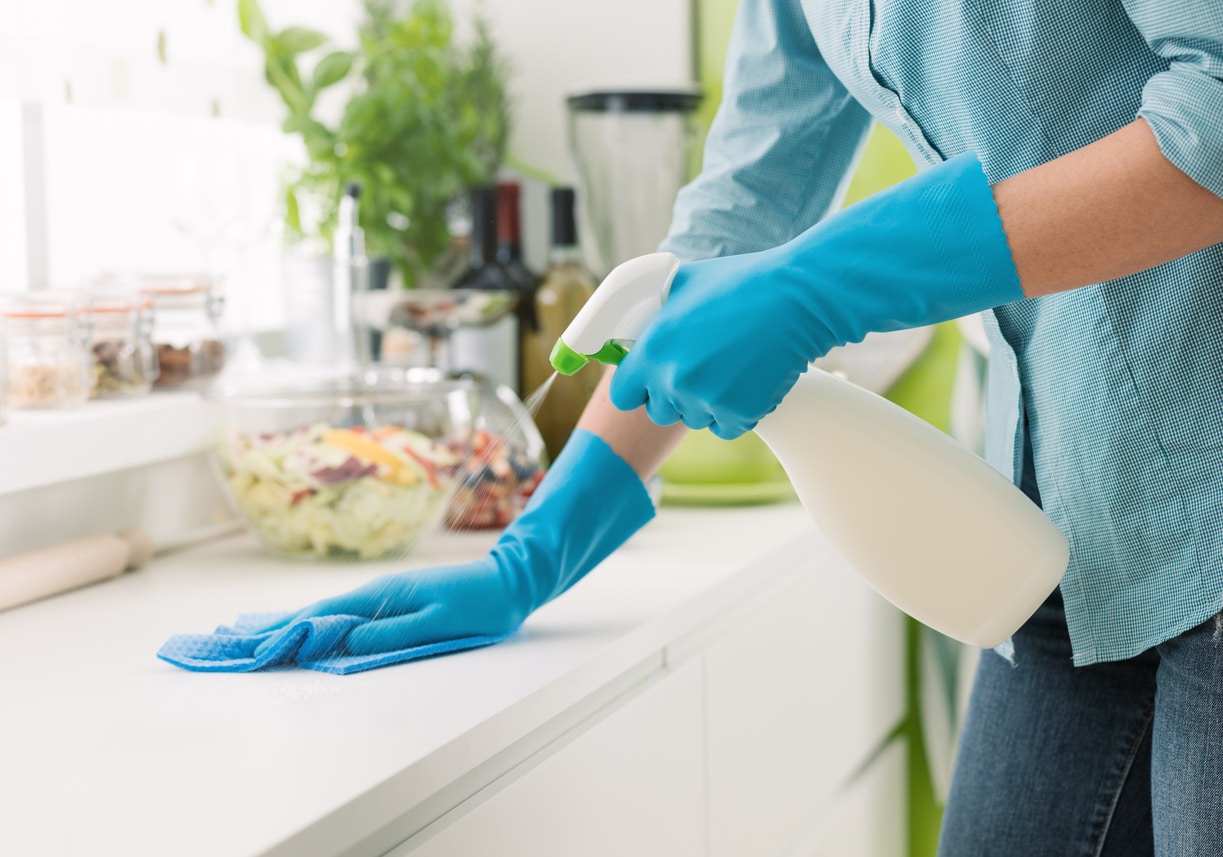Approximately 50 million people have an allergic reaction each year. If you’re one of these people, you know that keeping allergy triggers (allergens) out of your home is crucial to managing your symptoms. However, one place you might not have thought of as a source of allergens is your kitchen.
When it comes to maintaining a safe, symptom-free kitchen, keeping allergens in check is crucial. From food to mold, allergens can sneak into your kitchen, increasing the risk of an allergic reaction. Let’s look at some essential steps to help make your kitchen an allergen-free zone.
Common Kitchen Allergens

A few common allergens you may find hiding in the kitchen include:
- Food allergens. Common food allergens include peanuts, shellfish, eggs, dairy, wheat and soy. Even trace amounts of these foods can cause serious reactions.
- Mold. Mold thrives in humid environments like kitchens and basements. You may find it growing in and under sinks and appliances or in damp, rarely-cleaned corners.
- Pollen. If you live in an area with high pollen levels—such as near the Huntsville Botanical Garden or other parks—pollen can easily drift into your home through open kitchen windows, especially in spring, summer and early fall.
Cleaning Your Kitchen Free of Allergens
Regular cleaning is essential in reducing allergen buildup in the kitchen. A few ways you can clean allergens out include:
- Clean all surfaces. Wipe down countertops, cabinets and tables frequently. Use an allergy-friendly cleaner that’s free of harsh chemicals. Don’t forget about hard-to-reach spots like the top of the fridge or behind appliances. If possible, clean under large appliances like the fridge or oven at least once every three to six months.
- Control mold. Since mold can be a significant problem in the kitchen, particularly in humid areas, it’s essential to remove mold buildup quickly and prevent it where possible. Clean up spills immediately, fix any plumbing leaks and run the kitchen exhaust fan every time you cook to prevent mold growth.
- Separate food allergens. Prevent cross-contamination by storing allergenic foods separately. Use airtight containers and label them clearly. Clean your kitchen tools (knives, cutting boards and utensils) after each use, especially when preparing allergenic foods. If a member of your home has a severe food allergy, it’s best to keep that allergen (peanuts, soy, dairy etc.) out of the house entirely.
- Close the windows. To help prevent pollen from flying into your kitchen, close kitchen windows and rely on AC units during high-pollen days.
A clean, organized kitchen reduces the risk of allergen growth and helps prevent unnecessary reactions. If you or a loved one experience persistent symptoms like sneezing, itchy eyes or skin rashes, consider seeking allergy treatment. An allergy specialist can help pinpoint specific allergen sensitivities and recommend the best ways to avoid or treat them.
To learn more about managing allergy symptoms, contact North Alabama ENT Associates today to schedule an appointment with one of our trusted specialists.